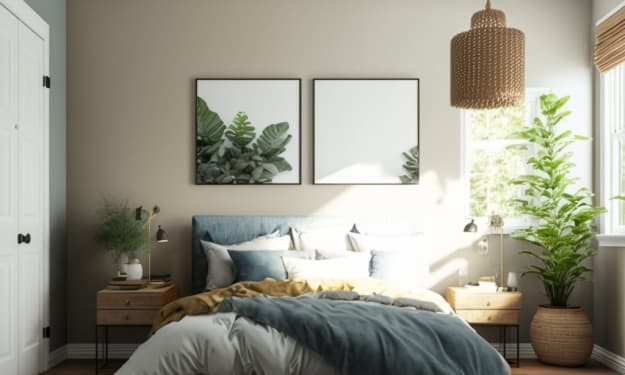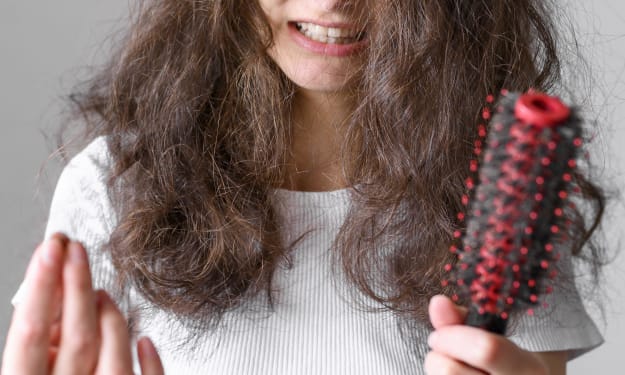Bad Luck Plants in Feng Shui
Understanding the Significance of Plants in Home Décor

Plants play a significant role in feng shui, an ancient Chinese philosophy that aims to create a harmonious and balanced living environment. While certain plants are believed to bring good luck and prosperity, others are considered to be associated with bad luck and negativity. Understanding the significance of these bad luck plants is essential for creating a harmonious and auspicious living space.
Introduction to Feng Shui
Feng shui is a traditional Chinese philosophy that dates back thousands of years. The word feng shui translates to "wind and water," and it involves manipulating these two elements to create balance and harmony in a living space. In feng shui, every aspect of a home, including furniture, colors, and plants, significantly impacts the energy flow and the overall well-being of its inhabitants.
The Significance of Plants in Feng Shui
Plants play a crucial role in feng shui as they are believed to absorb negative energy and purify the air. Different types of plants have different effects on the energy flow in a living space, and it's essential to choose plants that are auspicious and bring good luck. On the other hand, certain plants are associated with bad luck and negativity, and it's crucial to avoid them in your home.
Bad Luck Plants in Feng Shui
Cactus: Cactus plants are believed to bring bad luck and negative energy to feng shui. They are sharp and spiky, which symbolizes difficulties and obstacles. It's best to avoid placing cacti in your home, especially in the bedrooms and living rooms.
Bamboo: While bamboo is considered a lucky plant in feng shui, it is believed to bring bad luck if it starts to wilt or die. A dead bamboo plant signifies loss, death, and negativity, and it's crucial to replace it immediately.
Dead or Dying Plants: Dead or dying plants bring negative energy in feng shui. They symbolize decay, death, and negativity, and removing them from your home is essential.
Thorny Plants: Plants with thorns are believed to bring bad luck in feng shui. They symbolize difficulties, obstacles, and conflict, and avoiding placing them in your home is best.
Artificial Plants: Artificial plants are not considered auspicious in feng shui as they are not alive and do not absorb negative energy. It's best to avoid using artificial plants in your home, especially in the bedrooms and living rooms.
Good Luck Plants in Feng Shui
Lucky Bamboo: Lucky bamboo is considered a lucky plant in feng shui. It's believed to bring good luck, prosperity, and abundance in your home.
Peony: Peonies are believed to bring good luck and prosperity in feng shui. They are associated with love, happiness, and wealth and are an excellent addition to bedrooms and living rooms.
Orchids: Orchids are considered to be a lucky plant in feng shui. They symbolize love, beauty, and prosperity, and they are an excellent addition to the bedrooms and living rooms.
Peace Lily: Peace lilies bring good luck, prosperity, and peace in feng shui. They are an excellent addition to bedrooms and living rooms and are also known to purify the air and absorb harmful pollutants.
Jade Plant: The jade plant is considered a lucky plant in feng shui. It's believed to bring good luck, prosperity, and wealth and is an excellent addition to the living room or office.
How to Incorporate Good Luck Plants in Feng Shui
Place the plants in auspicious areas: In feng shui, it's essential to place the good luck plants in auspicious areas of your home. This can be in the living room, bedroom, or office.
Choose the right size: The plant size should be proportional to the room size. A large plant in a small room can be overwhelming, while a small plant in a large room can look insignificant.
Keep the plants healthy: It's crucial to keep the good luck plants healthy and well-maintained. A wilted or dying plant can bring negative energy into your home.
Avoid overcrowding: Avoid overcrowding your home with too many plants, which can create a cluttered and chaotic environment. Choose a few high-quality plants and place them strategically in your home.
Match the plant to the room's décor: Choose plants that match the room's décor. This will create a harmonious and balanced look in your home.
Conclusion
In conclusion, incorporating plants into your home décor can significantly impact the energy flow and well-being of your home. While certain plants are believed to bring good luck and prosperity, others are considered to bring bad luck and negativity.
Understanding the significance of these plants is crucial for anyone looking to create a harmonious and auspicious living space in feng shui. By choosing the right plants, placing them in the right areas, and keeping them well-maintained, you can create a positive and harmonious environment in your home.
FAQs
Q: Is it necessary to follow feng shui when incorporating plants into your home décor?
A: While following feng shui is unnecessary, it can be a valuable tool in creating a harmonious and balanced living space. Understanding the significance of the plants in feng shui can help you choose the right plants for your home and place them in the right areas for maximum benefit.
Q: Are artificial plants considered auspicious in feng shui?
A: Artificial plants are not considered auspicious in feng shui as they are not alive and do not absorb negative energy. It's best to avoid using artificial plants in your home.
Q: Can dead or wilted plants bring bad luck in feng shui?
A: Yes, dead or wilted plants are considered to bring negative energy and bad luck in feng shui. Removing them from your home and replacing them with healthy plants is essential.
Q: Can the size of the plant affect its significance in feng shui?
A: Yes, the size of the plant can affect its significance in feng shui. The plant size should be proportional to the size of the room, and it's essential to choose the right size for maximum benefit.
Q: How often should I replace my good luck plants in feng shui?
A: Keeping good luck plants well-maintained and healthy is essential. If a plant starts to wilt or die, it's crucial to replace it immediately to maintain positive energy in your home.
About the Creator
Daniel Siri
I'm Daniel Siri and have a passion for exploring & learning about different cultures & traditions around the world. I have always been fascinated by philosophies such as Traditional Chinese Medicine. I look forward to connecting with you!
Enjoyed the story? Support the Creator.
Subscribe for free to receive all their stories in your feed. You could also pledge your support or give them a one-off tip, letting them know you appreciate their work.






Comments
There are no comments for this story
Be the first to respond and start the conversation.